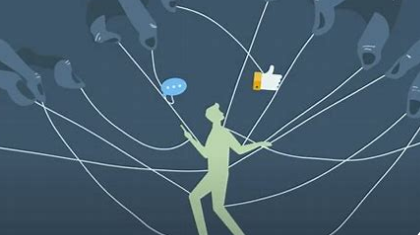Call Anytime 24/7
Mail Us For Support
Office Address
Second floor, Skymall, Sangotedo, Lagos.

Understanding the way our minds work is a really necessary thing. Sadly, we are not very good at this. As it’s the opposite, the people around us seem to understand the way we think better. Our ideology on politics, what we love to read, our food choices and every other thing can be computed from our use of social media.
With the use of our internet histories, the computers can reconstruct our personality. With the access to this data, Facebook algorithm carries out a categorization based on attributes. Doing that, everyone would directly fit into a database of about 52,000 attributes. The received information is what often influence the categories of ads you that get targeted at you.
How does FB generate this information? This is done by an advanced system of personalization algorithms. An algorithm is a set of rules to be followed in a calculation, like recipes. What happens when you open the FB page? Facebook Algorithm looks at all the content that could show up on your page. These are likely to be the posts created by people know to you, advertisements, and posts from the pages you follow. Each content gets a score based on the information. Content with higher scores comes at the top of your page. Thus, it chooses what you see on your homepage. It is only partly controlled by the user privacy settings. Based on your response, the algorithm figures out what you like. It is continuously learning your behavior and looking for indications whether your preferences have changed.
Looking at it, Facebook’s algorithms has actually evolved with time. It’d obvious Facebook has a group of specialists constantly redefining the algorithms to stalk and understand you better since its creation back in 2006. The Like button appeared in 2007. In 2009, the posts with the most Likes get boosted to the top of the feed. In 2016, a post’s value becomes dependent on the time users spend on it. In particular, the algorithm began to give higher score to posts that created volatile response.
In 2019: Facebook starts promoting posts from those people with whom there is strong interaction. How does Facebook retain your loyalty? For you to be loyal to FB, you have to be rewarded occasionally. The reward is someone liking you or a compliment on a photo or a post. This stimulates you to contribute more. Facebook is exploiting a human vulnerability. We have a basic need to be part of something and for social status.
Information about ourselves is treated by our brain like a reward. Our brain’s “valuation system” activates when our behavior is rewarded with compliments, presents or financial rewards. Similar thing happens when we come across self-relevant information. That is information about yourself. This is the reason why you respond when someone calls your name even in a noisy room. Information relevant to our reputation and social hierarchy is especially important. We are sensitive to this.
Is Social media addictive in nature?
Social network sites reward you by providing self-relevant information, getting billions of people to come back to FB. To find interesting content, you must continue scrolling. Scrolling uses the same psychology as a gambling slot machine because people are motivated to continue searching for the next reward. Continued scrolling means you’ll stay on the platform longer and see more advertisements.
There is a concept called Social Proof. Social Proof is the behavior when people tend to emulate what others do to do the right thing in a situation. For example, people tend to sign a petition when they realize that many others have already done it. You select a restaurant that has a higher customer likes.

To encourage you to stay active on their sites, social media platforms will continuously remind you of your friends’ activities. There is another concept called Reciprocity. Reciprocity refers to people responding positively to people who have treated them well. You tend to tip more to a waiter who bring complementary chocolates with a bill. Social media sites take advantage of our natural urge to respond to the positivity others show and make us engage with their platforms more often. For example, Facebook lets people know when their messages have been seen, spurring them to reciprocate.
Well, with all these already said, we have our answer. Social media has control over our minds. Its dynamic system influences everyone’s character. We must try to put limitations in place whilst approaching every social network.
